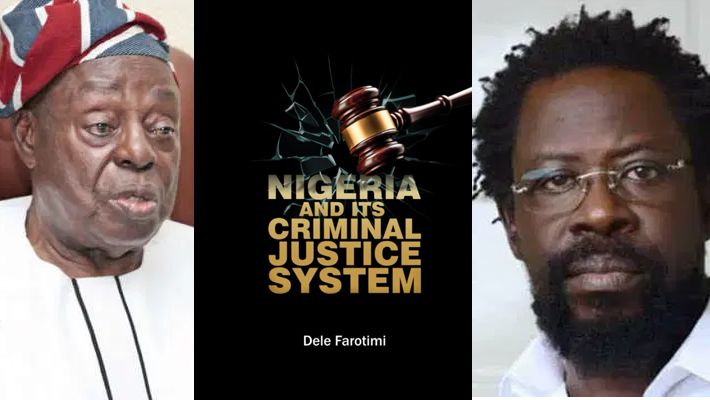The Federal High Court in Abuja has issued an order halting the production and distribution of Nigeria and Its Criminal Justice System, a book authored by embattled human rights lawyer Dele Farotimi.
The book, which has sparked heated debates due to its controversial allegations of judicial manipulation, was recently ranked as a global bestseller in the politics category on Amazon.
The order, sought by prominent legal figure Afe Babalola, demands the cessation of both physical and digital sales and distribution of the book.
Additionally, the court’s injunction includes a directive for the seizure of royalties generated from the book’s sales.
The application, filed under suit number CV/5372/24 by Kehinde Ogunwumiju, SAN, the Head of Afe Babalola’s law firm, was dated December 6, 2024. The court granted an interlocutory injunction, restraining Farotimi and all parties associated with the book from further distribution.
This includes publishers, distributors, sellers, and various bookstores such as Amazon Online Bookstore, Rovingheights Bookstore, Jazzhole Lagos Bookstore, Glendora Bookshop, Quintessence Lagos Bookstore, and Patabah Books Limited.
The injunction reads: “An order of interlocutory injunction restraining the defendant/respondent, whether acting by himself, his staff, employees, servants, privies, representatives, agents, publishers, distributors, sellers, re-publishers, re-sellers, or any other person however described including Amazon Online Bookstore, Rovingheights Bookstore, Booksellers Bookstore, Jazzhole Lagos Bookstore, Glendora Bookshop, Quintessence Lagos Bookstore and Patabah Books Limited from further publishing, selling, circulating, advertising, or distributing the physical/hard/digital/soft copies of the book authored by the defendant/respondent titled: ‘Nigeria and Its Criminal Justice System’, online.”
The book accuses Afe Babalola of manipulating the judiciary to secure favorable rulings for his clients. These allegations have caused a stir, bringing Babalola, a respected legal icon, into the public eye.
The legal move to block the book’s distribution comes amidst its global rise in popularity.
Critics and readers have lauded Farotimi for his bold exposé on Nigeria’s criminal justice system, with many considering it a critical work in uncovering the flaws and corruption within the legal and judicial systems of the country.
However, Farotimi’s supporters argue that the injunction represents an attack on free speech, with some viewing it as an attempt to suppress accountability within the judiciary.
As the legal battle continues, the issue of freedom of expression and the limits of judicial authority in Nigeria remains a central point of contention.
This case has ignited broader debates about censorship, accountability, and the role of the judiciary in upholding democratic principles and the right to free expression.



